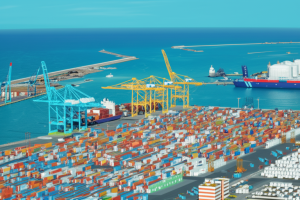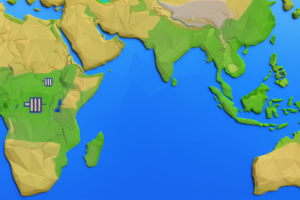Iran’s Stark Warning: Direct U.S. Involvement in Israel Conflict Invites ‘Irreparable Damage’
Amidst the escalating military exchanges between Iran and Israel, Tehran has issued a strong and unequivocal warning to the United States: any direct involvement in the conflict will result in “serious, irreparable consequences.” This statement, made by Iran’s Supreme Leader Ayatollah Ali Khamenei, underscores the gravity with which Iran views potential U.S. military intervention, signaling a significant escalation in regional tensions and a dangerous pivot towards a wider conflagration.
Escalating Rhetoric and Deepening Tensions
The current military confrontation, now in its sixth day, has seen both Iran and Israel widening their attacks. Iran’s supreme leader has publicly declared that his nation “stands united and will not surrender,” directly responding to U.S. President Donald Trump’s calls for Iran’s “unconditional surrender.” Khamenei’s warning of “serious irreparable consequences” serves as a direct riposte to any U.S. military action, indicating that Iran possesses the resolve and capability to retaliate forcefully. This bellicose exchange highlights the precarious geopolitical tightrope that the region is currently walking, with the potential for a small spark to ignite a much larger regional conflict.
Iran’s Military Posture and Threat Perception
Iran’s strategic calculations appear to be centered on deterrence and retaliation. The country boasts the largest arsenal of ballistic missiles in the Middle East, which it views as crucial for deterring potential adversaries and responding to threats. Iran has previously used these missiles to target militants in Syria and Iraq, and more recently, has launched volleys of missiles and drones at Israel. The U.S. Office of the Director of National Intelligence acknowledges Iran’s significant missile capabilities, a factor that likely informs both Tehran’s defiant stance and Washington’s cautious approach.
The U.S. Dilemma: Navigating a Complex Regional Landscape
The United States finds itself in a delicate position. While maintaining its longstanding alliance with Israel and expressing concerns over Iran’s nuclear program and regional activities, Washington is also keen to avoid a direct military confrontation with Iran. President Trump’s pronouncements, ranging from calls for de-escalation to threats of military action, reflect this complex balancing act. The U.S. has provided significant military support to Israel, including intelligence sharing and potentially assisting in missile interceptions, further complicating its posture. However, the implications of direct U.S. military engagement are vast, potentially drawing the U.S. into a wider regional war, destabilizing energy markets, and exacerbating existing geopolitical fault lines.
The Specter of “All-Out War”
An Iranian foreign ministry spokesperson warned that “any American intervention would be a recipe for an all-out war in the region with very, very bad consequences for the whole international community.” This sentiment echoes the broader concern that the current conflict, if not carefully managed, could spiral into a devastating regional war, drawing in multiple state and non-state actors. The historical animosity between the U.S. and Iran, rooted in the 1979 revolution, further complicates any potential de-escalation efforts.
Beyond Rhetoric: A Careful Calculation?
Despite the fiery rhetoric, some analysts suggest that Iran, under Supreme Leader Khamenei, often walks a fine line between aggressive posturing and calculated action, aiming to project strength while avoiding a direct, all-out conflict with the U.S. However, the current intensity of the exchanges and the direct targeting of nuclear facilities by Israel, which Iran has condemned as an “act of war,” could push both sides towards an irreversible escalation. The effectiveness of U.S. diplomatic engagement, particularly in light of past disagreements over nuclear deals and sanctions, remains a critical question mark.
Conclusion: A Precarious Path Forward
Iran’s threat of “irreparable damage” in response to potential U.S. military involvement paints a stark picture of the escalating crisis. The coming days will be crucial in determining whether diplomatic channels can be effectively utilized to de-escalate the situation or if the region is indeed heading towards a wider, more devastating conflict. The decisions made by leaders in Tehran and Washington, in tandem with the actions of regional powers, will shape the trajectory of this volatile geopolitical landscape.




